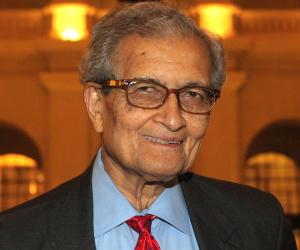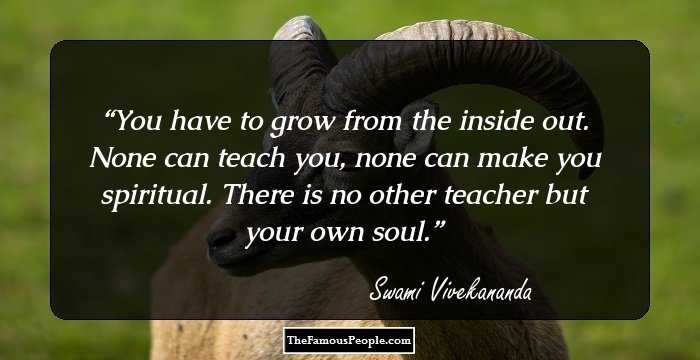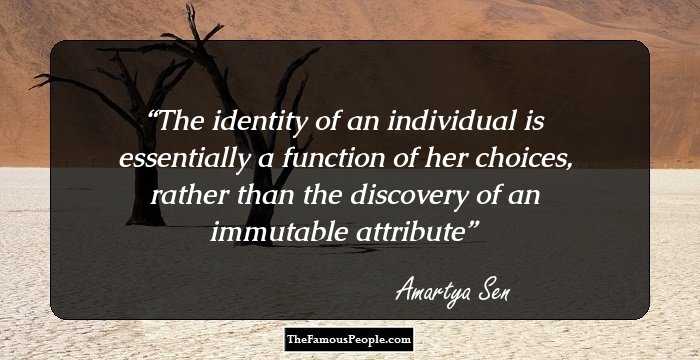
The identity of an individual is essentially a function of her choices, rather than the discovery of an immutable attribute
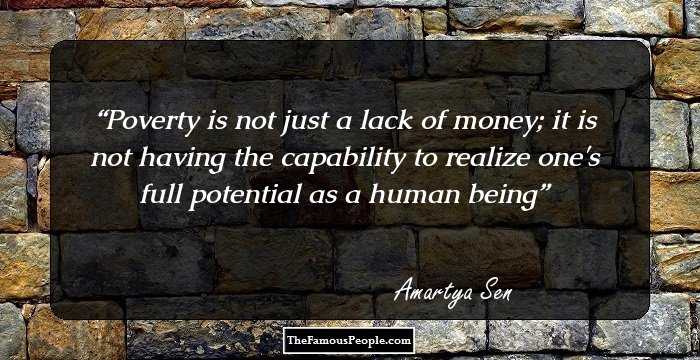
Poverty is not just a lack of money; it is not having the capability to realize one's full potential as a human being
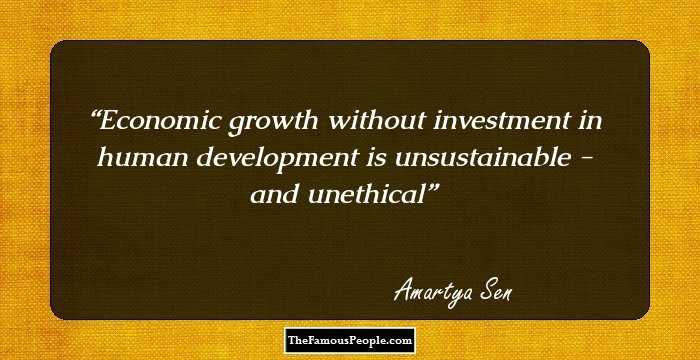
Economic growth without investment in human development is unsustainable - and unethical

The success of a society is to be evaluated primarily by the freedoms that members of the society enjoy.
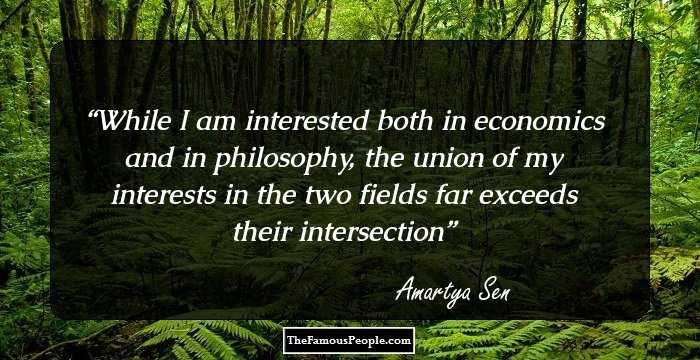
While I am interested both in economics and in philosophy, the union of my interests in the two fields far exceeds their intersection
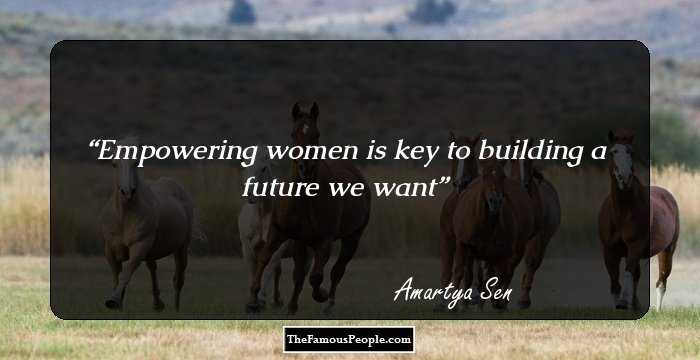
Empowering women is key to building a future we want
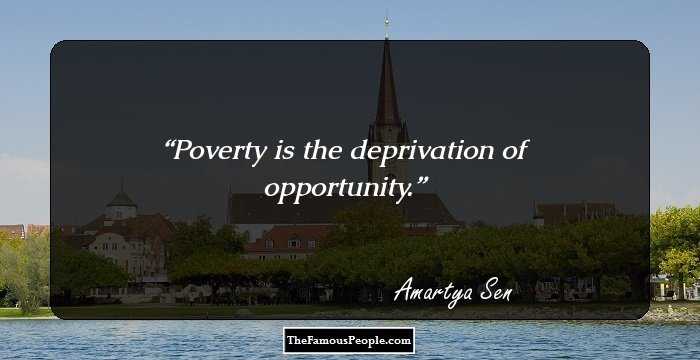
Poverty is the deprivation of opportunity.
Human development, as an approach, is concerned with what I take to be the basic development idea: namely, advancing the richness of human life, rather than the richness of the economy in which human beings live, which is only a part of it.
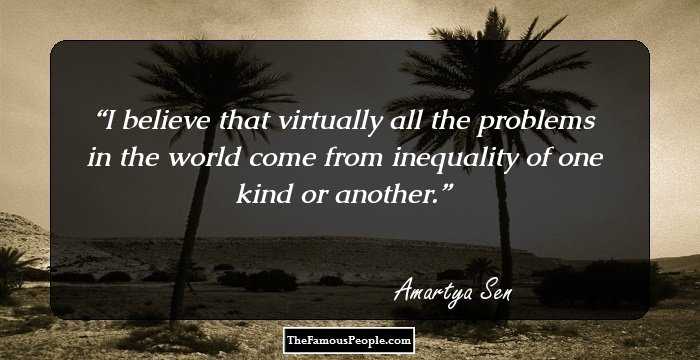
I believe that virtually all the problems in the world come from inequality of one kind or another.
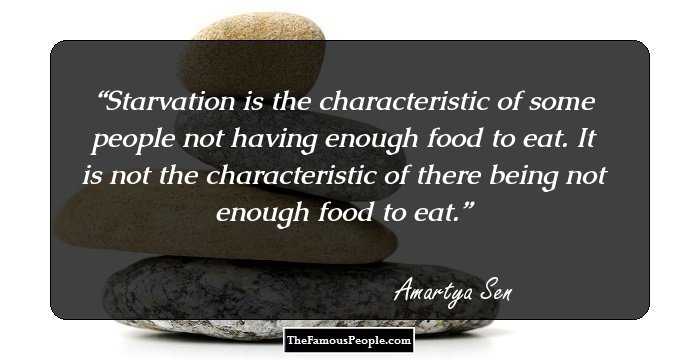
Starvation is the characteristic of some people not having enough food to eat. It is not the characteristic of there being not enough food to eat.
Education makes us the human beings we are. It has major impacts on economic development, on social equity, gender equity. In all kinds of ways, our lives are transformed by education and security. Even if it had not one iota of effect [on] security, it would still remain in my judgment the biggest priority in the world.
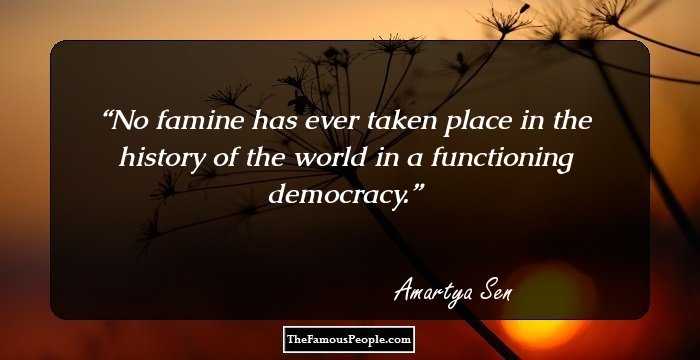
No famine has ever taken place in the history of the world in a functioning democracy.
We need to ask the moral questions: Do I have a right to be rich? And do I have a right to be content living in a world with so much poverty and inequality? These questions motivate us to view the issue of inequality as central to human living.
Globalization can be very unjust and unfair and unequal, but these are matters under our control. Its not that we dont need the market economy. We need it. But the market economy should not have priority or dominance over other institutions.
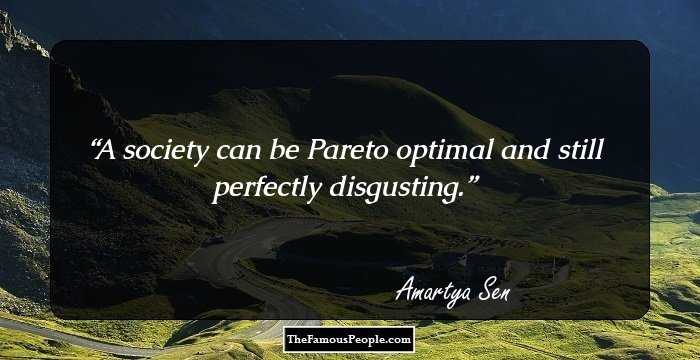
A society can be Pareto optimal and still perfectly disgusting.
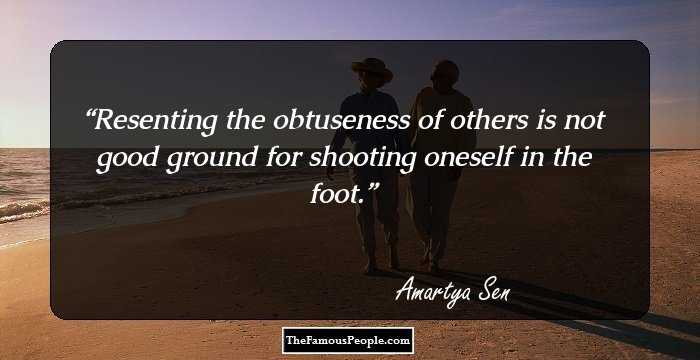
Resenting the obtuseness of others is not good ground for shooting oneself in the foot.
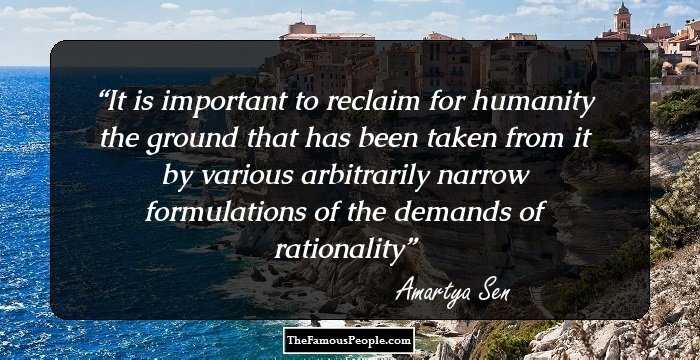
It is important to reclaim for humanity the ground that has been taken from it by various arbitrarily narrow formulations of the demands of rationality
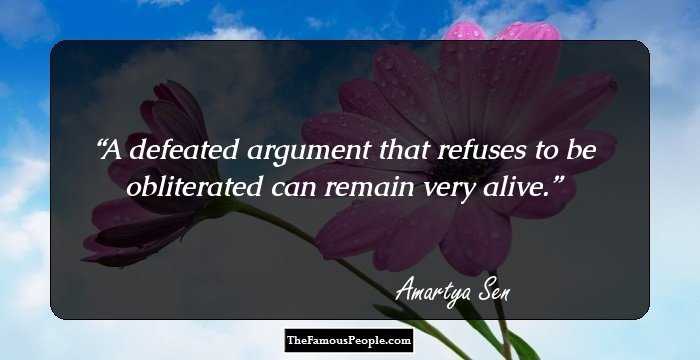
A defeated argument that refuses to be obliterated can remain very alive.
Any classification according to a singular identity polarizes people in a particular way, but if we take note of the fact that we have many different identities - related not just to religion but also to language, occupation and business, politics, class and poverty, and many others - we can see that the polarization of one can be resisted by a fuller picture. So knowledge and understanding are extremely important to fight against singular polarization.
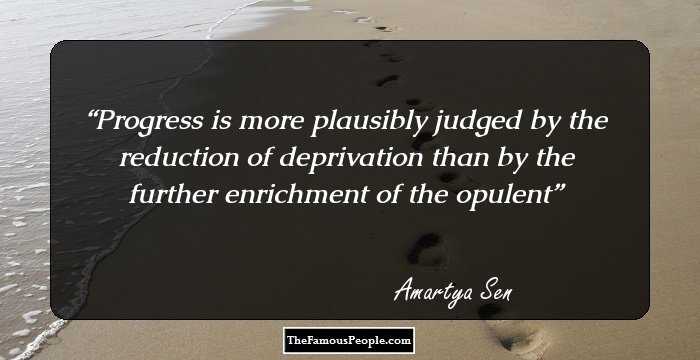
Progress is more plausibly judged by the reduction of deprivation than by the further enrichment of the opulent
![Human life depends not only on income but also on social opportunities, [for example] what the state does for educating.](https://quotes.thefamouspeople.com/images/quotes/amartya-sen-75388.jpg)
Human life depends not only on income but also on social opportunities, [for example] what the state does for educating.
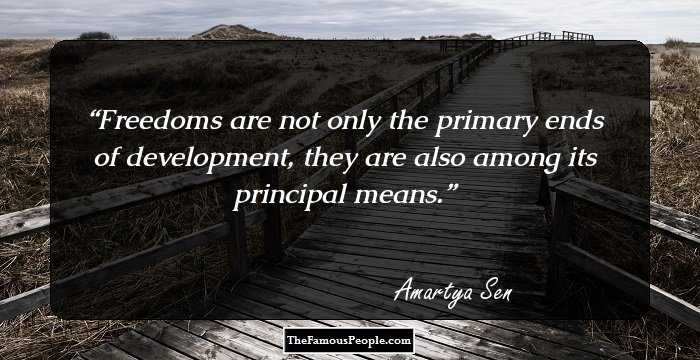
Freedoms are not only the primary ends of development, they are also among its principal means.
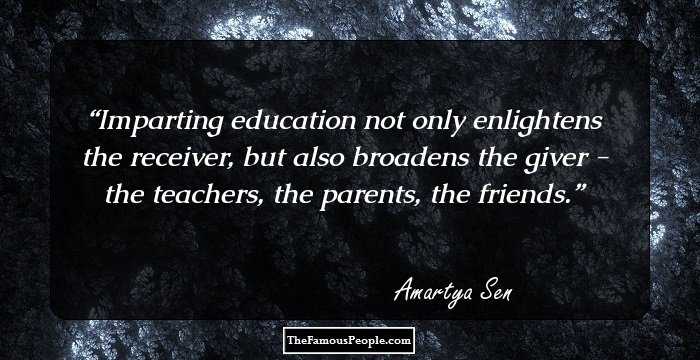
Imparting education not only enlightens the receiver, but also broadens the giver - the teachers, the parents, the friends.
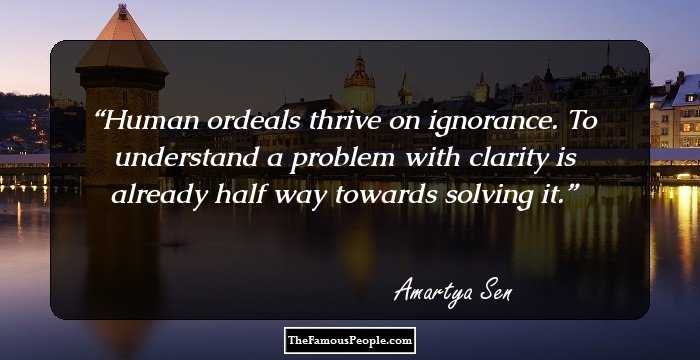
Human ordeals thrive on ignorance. To understand a problem with clarity is already half way towards solving it.
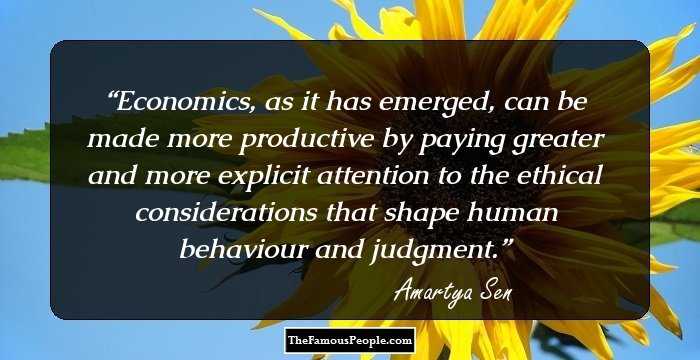
Economics, as it has emerged, can be made more productive by paying greater and more explicit attention to the ethical considerations that shape human behaviour and judgment.
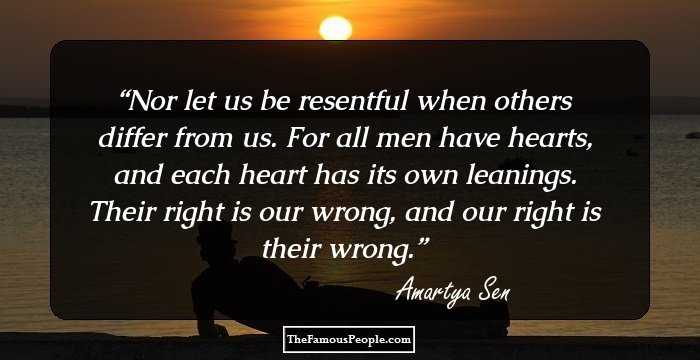
Nor let us be resentful when others differ from us. For all men have hearts, and each heart has its own leanings. Their right is our wrong, and our right is their wrong.

Unceasing change turns the wheel of life, and so reality is shown in all it's many forms. Dwell peacefully as change itself liberates all suffering sentient beings and brings them great joy.
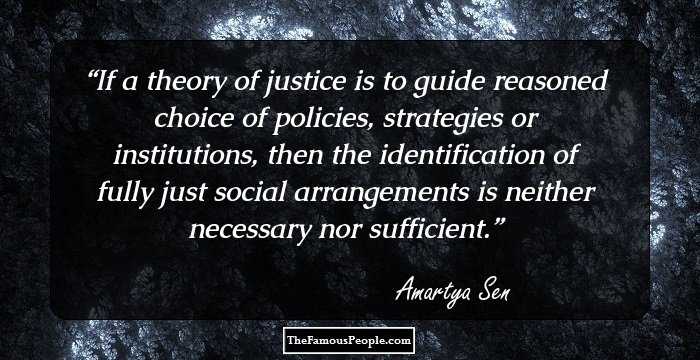
If a theory of justice is to guide reasoned choice of policies, strategies or institutions, then the identification of fully just social arrangements is neither necessary nor sufficient.
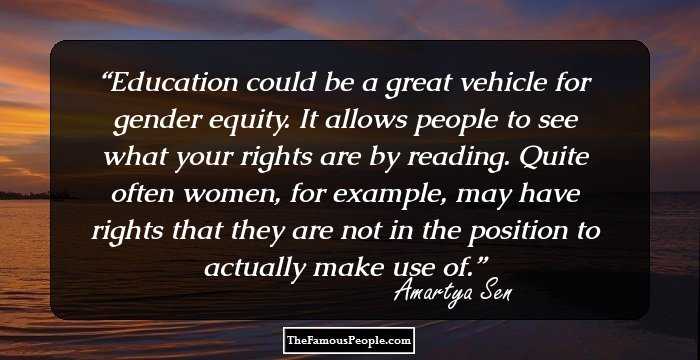
Education could be a great vehicle for gender equity. It allows people to see what your rights are by reading. Quite often women, for example, may have rights that they are not in the position to actually make use of.
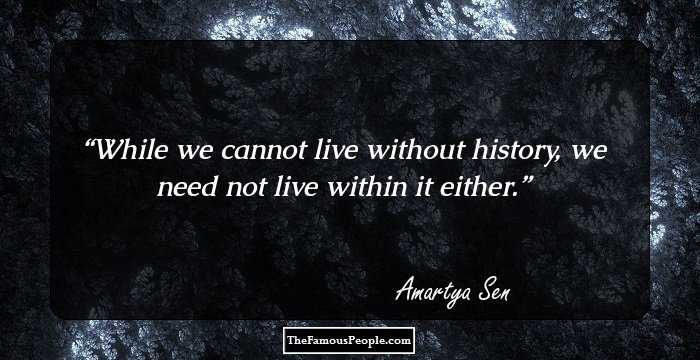
While we cannot live without history, we need not live within it either.

